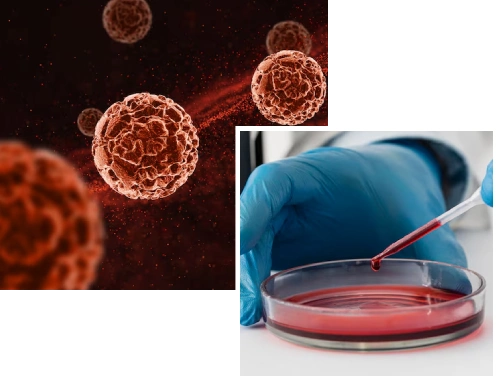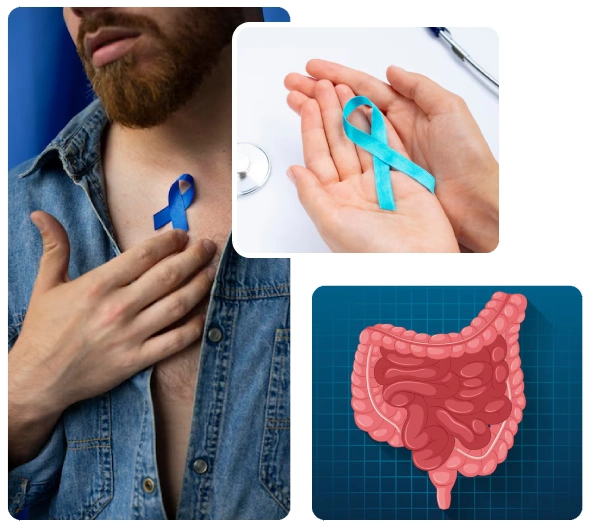
Colon Cancer
Colon Cancer Doctor in Kolkata
What is Colon Cancer?
Symptoms of Colon Cancer
- Changes in bowel habits like constipation or diarrhea, or in the consistency of stools that lasts for more than a few days
- Rectal bleeding or blood in the stool, which can appear as a bright or dark red color
- Persistent abdominal discomfort (cramping or bloating)
- Unexplained weight loss or loss of appetite
- Fatigue
- Anemia or iron deficiency may result in pale skin, weakness, and shortness of breath
Colon cancer female symptoms may include these signs along with pelvic pain or discomfort. It is essential to seek medical attention if these colon cancer symptoms continue for a longer period.
Colon Cancer Staging: TNM System
Book an Appointment

Dr. Tanmoy Kumar Mandal
D.M.(Medical Oncology), M.D.(General Medicine)

Causes of Colon Cancer
Age
Family History
A family history of colon cancer or other types of cancer can increase your risk of developing colon cancer.
Inherited Genetic Mutations
Some inherited genetic mutations, like Lynch syndrome or familial adenomatous polyposis (FAP), can increase the risk of colon cancer.
Personal History of Colon Polyps or Inflammatory Bowel Disease (IBD)
People who have had colon polyps or IBD, such as ulcerative colitis or Crohn’s disease, have an increased risk of developing colon cancer.
Radiation Therapy
Radiation therapy to the abdomen or pelvis for other medical conditions (such as cancer), can also increase the risk of colon cancer.
Preventing Colon Cancer
Though not all cases of colon cancer can be prevented, there are several steps you can take to reduce your risk. Here are some ways on how to prevent colon cancer:
Regular Screening
Healthy Diet
Exercise
Regular physical activities can help you maintain a healthy weight and reduce the risk of colon cancer.
Avoid Smoking and Excessive Alcohol


Treatments for Colon Cancer
Surgery
Surgery is often the first line of treatment for colon cancer treatment in Kolkata. In this procedure, cancerous tissue is removed from the colon or rectum. Local colectomy is also recommended in which the entire colon is removed.
